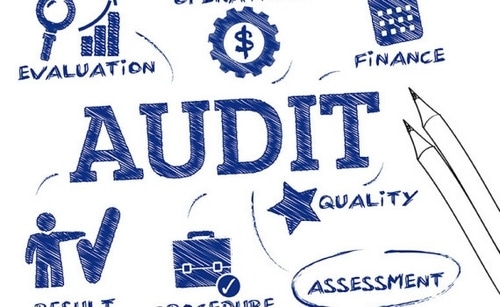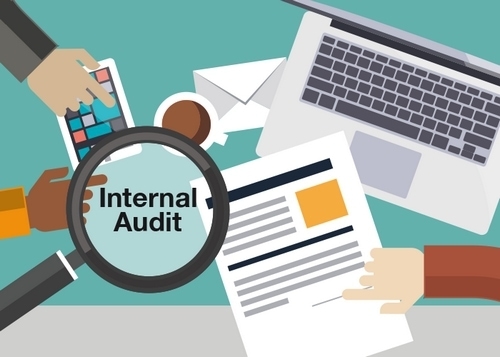Review and investigation of financial statements and reports are called auditing. The reports and statements can be of any nature like revenue reports, expense reports, management account records etc.
The results of audits are shared with external and internal stakeholders. They may also be shared with government and banks or even public if the need presents itself. The classification of auditing depends on different types and levels of assurance of the audit. It depends on the objective, purposes, scope, use etc. While few audits are done to enhance and improve procedures, others are necessitated by various organizations as a part of their scrutiny process.
Table of Contents
13 Types of Audit used by Companies
1) Internal audit
As the name suggests this type of audit is performed to determine the internal activities of the company and is carried out by internal or external stakeholders. It is an independent process which may or may not be reported to the management. The main function of internal audit is to determine whether or not the internal functions are working properly.
A special investigation, fraud, complaint, or operational review are a few things that are covered by the internal audit. The general report of internal audit contains an opinion on feedback along with the list of findings during auditing and its implications on the working. The final part of internal audit contains recommendations for the findings that could help benefit the organization. Post-approval from the management the steps may be applied in the company.
2) External Audit
When an external form is employed to perform auditing, it is known as an external audit. Services like tax, legal, consulting and sales audit may be performed by external firms. It is one of the most common types of audit found in many firms. To stay neutral and unbiased, many companies conduct external audits with third party firms.
Deloitte Ernst and young are renowned names of external auditors. Use of external forms is very common in large multinationals. The firms follow international standards of auditing very strictly and maintain a professional code throughout the auditing procedure. It is ensured that the firm works independently from the client so that if a conflict of interest of cause proper procedure and action can be taken to change or withdraw the auditing procedure. External auditors may not stick to external auditing only but some may offer services for internal auditing also. External auditing is considered to be more professional when internal auditing. Also, the chances of biased audits are less in case of external auditing.
3) Forensic Audit
This is a specialized type of audit which is performed by a forensic accountant who is killed in investigation and accounting both. This is specially used in the cases where investigations of the report may be used in the court. Forensic auditing acts as proof in that particular subject matter and hence in this auditing is to be done by specialized accountant only.
The reason for auditing could be anything from fraud to crime or insurance claims or even a dispute between internal or external stakeholders. Forensic auditing needs to have a proper planning and execution while following the ethical guidelines of the finances very strictly. It is not a very popular method of auditing in case of financial statements are of statutory audit going to the large costs involved. Forensic auditing may only be used in the cases where it is been made mandatory to perform it.
4) Statutory Audit
The auditing that is required by law for local authority about particular financial statements for a specific type of entities is called statutory audit. The common examples of statutory auditing are the that all banks’ financial statements are required to be audited my proper audit firms which are approved by Central Bank. Statutory audit is conducted only after approval by higher authorities and for the submission to official authorities.
5) Tax Audit
Tax auditing is performed by a tax department of government or designated tax authority. The tax auditing may be performed as a consequence of a complaint found by the government or any other whistleblower. The organization need not interact with the tax authority since the tax auditing is initiated by themselves and the reports and findings are submitted directly to the government.
6) Information Technology Audit
This audit is performed to check the reliability of security systems and security structures. This has become very important since most of the transactions are carried out using information technology. Right from ATM machines to Internet banking where a large amount of money is transferred via computer auditing of information technology is crucial for every financial organization. Most of the organizations provide both IT Audit and financial audit.
7) Environmental Audit
The main objective behind performing an environmental audit is to determine the resource viability in the environment and how does the large corporation manage it. An environmental audit is usually done by Lord corporation or nonprofit organization for the government that is public sector. It ensures that the environment is not damaged beyond a certain limit because of the organization.
8) Compliance audit
It is one of the types of audit that is performed to check the workings of internal policies and procedures and their compliance with the prescribed laws and regulations is called a compliance audit. The primary purpose of the audit is to check the correctness of the internal policies against the standards prescribed by the government or the governing body in a particular organization.
9) Value for Money Audit
When it comes to determining effectiveness economy and efficiency value for money audit is the way to check if the resources that are purchased are at good quality with low cost. If the materials that have been prepared are at the best cost and the best available material in terms of quality is the objective of value for money audit.
10) Review of Financial Statements
This is a negative engagement in which auditors are engaged to review and report the financial statements of an organization. In the end, the auditor’s do not express whether the financial statements are true and correct or not.
11) Financial audit
The analysis for the fairness and correctness of the information which is there in the financial statements is called financial audit which is also one of the important types of audit conducted by any firm. It is conducted by a designated CPA firm which is more often than not an external firm does not have any relation with the organization to be reviewed.
Financial audits are conducted to know the financial stability of the organization especially the ones which are in the public domain. this kind of audit is necessarily added by the government if they find falsification of any kind in the reports. Financial auditing is also carried out to determine the external stakeholders about the financial viability of the organization. Financial audit for carried out based on the procedures laid by GAAP.
12) Operational Audit
A detailed analysis and studying of the goals the processes and procedures and the results that the process will yield is called operational audit. This kind of audit may be conducted by internal or external auditing from but the intention behind the operational audit is only to improve the efficiency buy validating the operational steps. The report consists of a recommendation for steps of improvement that the firm should take in order to improve operational efficiency.
13) Sales Audit
Knowing about the sales processes the man management target reviewing and stock evaluation comes under sales auditing. Sales audit is performed to determine the nature of sales that is been brought the number of targets that have been given along with the output per employee from the sales team.
Sales auditing is very important for the organization to determine whether or not the sales practice that is being carried out currently is working or not and how could it be improved. Sales auditing helps in addressing hindrances in Sales processes and tends to improve profits of the organization and hence it usually performed by external auditors rather than internal auditors.
The above were all the different types of audit that a business firm uses. Audits help the company improve and also help the company follow a set protocol. Hence, regular auditing and regularly acting on the results of the audits is important for the company. Depending on which department is weak, you can accordingly conduct one of the many types of audits mentioned above.


